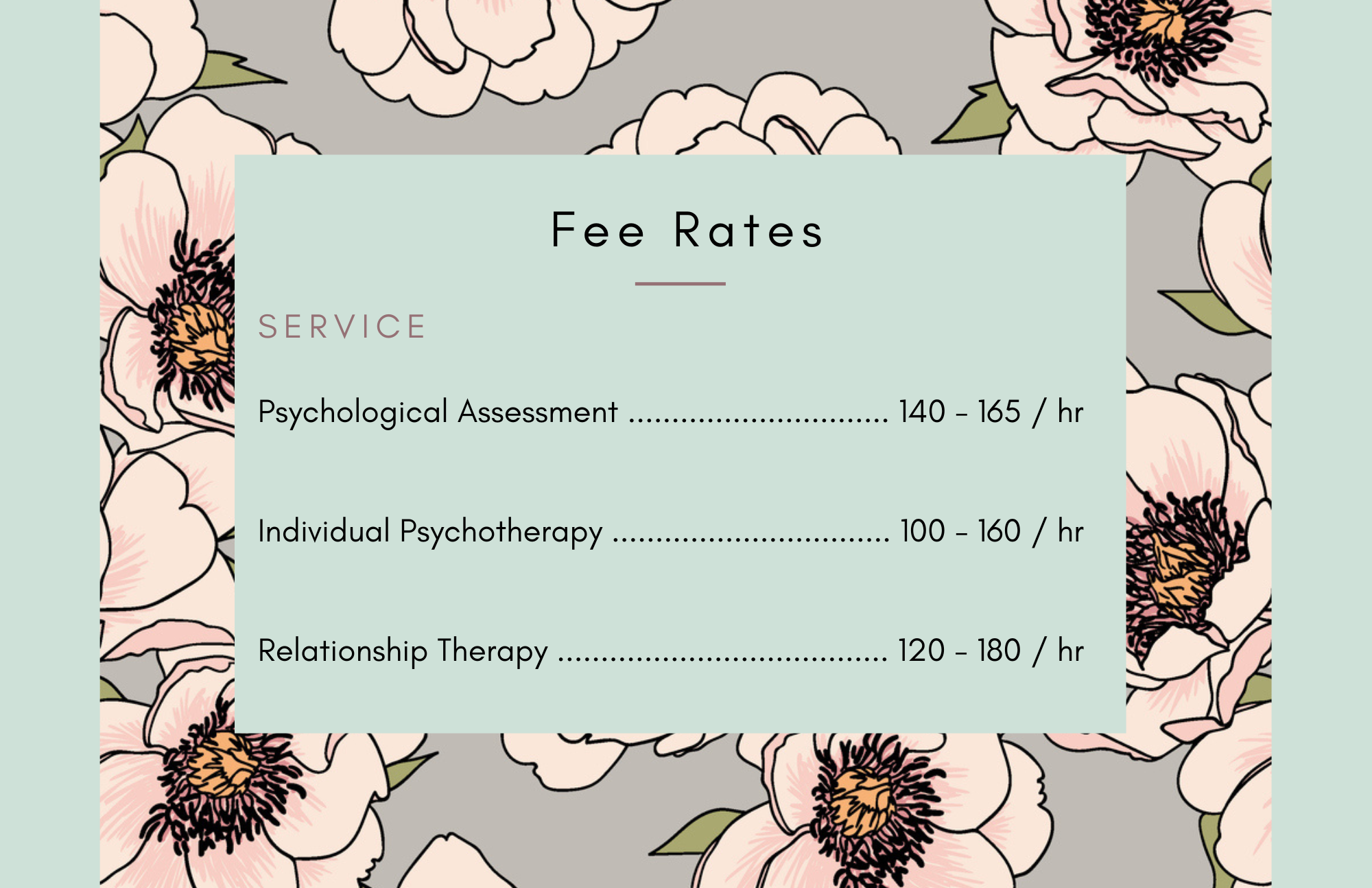Psychotherapy and Assessment for Individuals and Relationships
As a Licensed Clinical Psychologist, I offer evidence-based and culturally attuned psychological assessment and psychotherapy for adults.
For assessment, I specialize in the comprehensive assessment of adults with complex or chronic psychological challenges. As a therapist, I offer a range of evidence-based individual and relationship therapies, which I integrate with relational, cultural, and embodiment approaches.
I value working with adults across the age span, working frequently with clients in early to middle adulthood as well as clients over sixty-five. You can learn more about my education and areas of expertise here.
At this time, I am available for new clients for psychological assessment, with some limited availability for individual therapy and relationship therapy. To be contacted for a complimentary 20 minute initial consultation, please fill out the contact form below. Serving clients in Louisiana and Texas, with the option for in person appointments near Audubon Park in Uptown New Orleans.
On This Page:
Approach to Assessment and Therapy
Assessment and Therapy Services
Payment and Sliding Scale Options
Initial Consultation Request Form
Approach to Psychotherapy and Assessment
Client centered and affirming: I view clients as the authority on how they relate to their experiences and identities, what they value and prioritize, and how they define their success in our work together. Therapy and assessment services are based on a collaboratively developed treatment/assessment plan, informed by client-identified values and goals. I regularly invite and normalize client feedback on what has been helpful and not as helpful as we work together towards their goals. Psychological assessment services are affirming of neurodiversity, 2SLGBTQIA+ communities, and complex mental health experiences.
Evidence-based: Therapy and assessment services are informed by the latest available research, professional practice guidelines, and theoretical frameworks, as well as the client’s contexts and perspectives. When planning psychotherapeutic care with clients, I typically provide several evidence-based options for us to consider and discuss— for example, I offer multiple therapies with evidence for treating anxiety, allowing for client decision-making in which approach we utilize. Treatment plans are discussed collaboratively and revisited and updated regularly, and clients receive a copy of their treatment plan. With psychological testing, assessment practices are based on the latest recommendations from professional organizations and neuropsychological research. I am continuously updating my assessment and therapy practices as I learn more about the needs of the clients I serve and the most effective ways to implement care.
Liberatory: I collaborate with clients in practicing cultural authenticity and critical awareness and approaching themselves with curiosity and compassion. I often support clients in approaching their daily life experiences with a strong, embodied sense of their values and a sense of connectedness to their communities and affirming relationships. Informed by frameworks from Liberation Psychology and the Psychology of Radical Healing Collective, these are some examples of what this looks like in practice with me: exploring personal and family values related to grief and mental health; openly addressing the cultural dynamics in our provider/client relationship; integrating religious/spiritual practices into therapy; focusing on the client’s relationships with their cultural identities and their body; bringing in loved ones to therapy sessions or assessment results sessions to discuss their needs together; and proactively resisting the pathologization of marginalized experiences.
Trauma-informed: I recognize the impact that trauma and a lack of safety can have on how clients experience the world, feel in their body, and relate to themselves and others. I frequently serve clients with complex, systemic, and medical trauma. I integrate trauma informed values into all aspects of my clinical approach, prioritizing opportunities for empowerment, collaboration, and embodiment. I often support therapy clients in developing their capacity to accurately assess their current safety, to assess the safety of others, and to regulate themselves in a values-aligned way, through different levels of safety and distress. Previous clients have described my clinical approach as calming, caring, and direct.
Services for Individuals and Relationships
Psychological Assessment
Customized and comprehensive psychodiagnostic and psychoeducational assessment for adults, utilizing a rigorous combination of formal psychological measures, diagnostic interviewing, and consultation with treating providers and/or loved ones
Results and recommendations are shared through a detailed, collaborative discussion and provided in the form of an Assessment Report (~10-14 pages)
Assessment Reports include a discussion of client’s unique diagnostic presentation, integrating assessment data with client experiences, as well as offering evidence-based treatment recommendations, supportive community resources, and functional strategies
My assessment process is based on Therapeutic Assessment, a model emphasizing empathy, collaboration, and the usefulness of the results from the client’s perspective
Can be helpful for:
Identifying specific diagnostic presentations, including complex, chronic, and previously unaddressed behavioral health challenges (ADHD, OCD, Autism, etc)
Establishing the context, impact, and relative importance of multiple diagnoses
Clarifying areas of challenge and strength in executive, interpersonal, sensory, and emotional functioning
Recommending academic or workplace accommodations
Recommending behavioral health treatment plans and approaches
I do not offer forensic, pediatric, fitness for duty, bariatric, emotional support animal, or custody evaluations- if you are unsure if your assessment goals fall within my areas of practice, you are welcome to contact me and I will be happy to connect you to referrals should we not be a good fit to work together
Individual Psychotherapy
Brief to longer term care for adults across the lifespan utilizing an evidence-based treatment plan
Treatment plans are developed collaboratively and updated regularly— Sample Treatment Plan
Commonly addressed areas:
Generalized anxiety, social anxiety, panic, and OCD
Depression, isolation, and shame
Grief, loss, and caregiving
PTSD, complex trauma, marginalization, internalized stigma, and vicarious trauma
Relationship with work, family+, and community
Interpersonal patterns and challenges
Identity affirmation, values development, self-compassion, and self-trust
Substance use (mild to moderate) and harm reduction
Disordered eating (mild to moderate) and relationship with food and eating
Relationship with body and embodiment
Sleep and rest difficulties
Modalities:
Interpersonal Therapy
Dialectical Behavior Therapy — Individual only
Cognitive Behavioral Therapy
CBT protocols for Depression, Generalized Anxiety, and Social Anxiety
CBT for Adult ADHD support
CBT for Phobias
Prolonged Exposure for PTSD
Exposure and Response Prevention for OCD
Mindfulness Based Cognitive Therapy
Relationship Therapy
Brief to longer term care for relationships and partnerships that begins with a formal assessment of the relationship dynamics to create a custom treatment plan
Treatment plans are developed collaboratively and updated regularly— Sample Treatment Plan
Inclusive of diverse romantic and sexual orientations and relationship structures
Commonly addressed areas:
Facilitating open communication and conflict resolution practices
Increasing vulnerability, emotional intimacy, and friendship
Preventative or responsive care for major relationship events, such as commitment ceremonies, moving in / housing changes, expanding a family, partner caregiving, or opening a relationship
Addressing sex and intimacy concerns, including related to trauma, neurodivergence, and cultural dynamics
Navigating evolving experiences of health, gender, and/or sexuality as a partnership
Responding as a partnership to stress from discrimination and oppression
Building shared relationship values and meaning making
Exploring the impact of past experiences on current relational functioning
Determining each partner’s needs, commitment, priorities, and values
Identifying the function of repetitive and unhelpful conflicts
Increasing awareness of relational strengths and effective relational strategies
Modalities:
Integrative Behavioral Relationship Therapy
Gottman Method Relationship Therapy
Acceptance and Commitment Therapy for Relationships
Payment and Rates
Therapy and assessment sessions are scheduled and paid for through SimplePractice, which accepts cash, most major credit cards, and FSA/HSA cards. I do not accept insurance and am considered an out of network provider, although I will be happy to provide superbills at client request if they have out-of-network benefits.
I offer the option of a sliding scale system for assessment and therapy. For those interested in using the sliding scale, during the initial consultation we discuss the sliding scale options and then clients self-select their payment level based on the currently available sliding scale spots. When selecting a payment level, clients are encouraged to consider their access to generational wealth and privilege and to prioritize lower cost spaces on the sliding scale for Black, Brown, Indigenous, and POC clients, 2SLGBTQIA+ clients, sex workers, and health care students and providers.
Psychological assessment services are billed hourly and payment occurs over the course of the assessment process as services are rendered. Assessments are comprehensive and customized to the individual client’s goals. Costs range depending on the assessment goals and case complexity, commonly but not exclusively in the range of $900 - $2400 for the total assessment process. This does not include optional follow up appointments for further discussions on results applications, diagnosis processing, or supportive strategies. An Assessment Plan with the estimated steps and costs is sent to all potential assessment clients after we meet for an initial consultation.
In accordance with the No Surprises Act, all clients will receive a Good Faith Estimate of what their services may cost, prior to initiating care.
Contact and Scheduling Initial Consultation
I offer potential new clients a complimentary initial 20-minute consultation before we start our therapy/assessment work together. This is an opportunity to address questions, outline potential goals, and discuss what it might look like to address those goals together. In the case that we do not end up working together, I am happy to provide a custom list of referrals or recommendations.
Please note:
I do not work with clients below 18 years old.
While most services are generally available virtually or in person at the preference of the client, not all services are appropriate for virtual, such as ADHD and Autism testing.
In person services are offered at my office in New Orleans near Audubon Park, which I share with therapist Amma Pennick, LPC (she/her). Our office is on the second floor (one set of stairs) and unfortunately does not have an elevator. Our building has all gender bathrooms, wide seating options, and a HEPA air purifier. The office is typically stocked with hot tea, snacks, stimming items, COVID tests, and masks.
I offer in person sessions on Wednesdays, Thursdays, and Fridays, with morning, afternoon, and early evening time options. Assessment administration sessions are on Wednesday or Thursday mornings.
I am vaccinated and boosted for COVID-19, take at-home tests at least once a month, and mask while in most public spaces. Please let me know if you would prefer that we mask during your therapy/assessment appointment.
Consult Request Form
Per Texas HB4224:
To request your health care records from this provider:
Contact Hi@Docjasper.com
To contact Texas Behavioral Health Executive Council:
https://bhec.texas.gov/contact-us/
To file a consumer complaint with the Texas Office of Attorney General:
https://www.texasattorneygeneral.gov/consumer-protection





